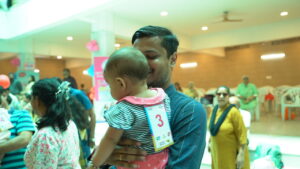In the age of disposable items coupled with inflation, it becomes all the more critical to be thrifty. To be thrifty doesn’t mean you are a miser and people if they interpret it as you being ‘kanjoos’ as a labelling or branding a person, first of all, you must be clear about what it exactly means.
A miser is defined as a person who loves to have a lot of money but hates to spend it.
A thrifty person is defined as a person who is sparing, frugal, economical and careful with the use of one’s money or resources.
So given the points laid out for the benefit of raising thrifty persons, what can parents do? Frugality is the way forward. How to raise frugal kids?
Practice frugality yourself!
There are some very tactical and responsible ways to do this –
- One of the easiest ways to con kids is the “Back to School” discount wherein the parents are forced to buy bags and stationary stuff that children already have. Every year bags are discarded for new ones even if the previous ones are good to use. Instead, wash those bags and dry them to reuse till they are good enough
- When kids are growing, it makes no sense to buy new clothes that they outgrow within a month or two. If your child has an elder sibling or cousin, let them wear the clothes (for they too could have hardly worn them 2-3 times max). Lend your child’s clothes to those who have kids younger than your child. It helps keep fabric wastage in check and also makes sense of the investment in clothes.
- A lot of people buy kitchen gadgets or utensils and then rarely use them. Either buy only when necessary and if needed keep rotating the utensil sets in your family circle. This can help with the newness when you throw a lot of parties and also helps others feel that they have some new utensils to offer to guests during occasions.
- Donate books – academic or otherwise. It is a great cause to donate books that can be extremely helpful to anyone in need. Pass on your academic books to juniors so that they can have a great contribution towards some child who might be weak in academics and needs help.
- Small things matter. As an example, using ink pens that last longer than gel pens with no refills or disposable pens can be a complicated thing. You can go in for eco-friendly pens but the ink pens last for generations to come.
- Save, invest and live below your means. That doesn’t mean you have to live beyond the poverty line. It simply means that you take stock of your spending habits and save more. Even if the children are given pocket money they must learn to save that pocket money for something they really want. It helps kids to understand the use of money and priorities around money.
How does one become frugal or thrifty?
It doesn’t happen overnight. It is mostly a case of not allowing your impulsive spending habits to overcome you. You will have to learn to practice restrain and patience. Once you are able to become frugal in habits, involve your kids and show them how it can be a very rewarding experience in the long run.
Being frugal in other areas comes from simple home solutions. As kids grow, they learn to become frugal and sustainable too in their habits. Saving electricity consumption, water intake and consumption gets minimized and growing kitchen useful plants for vegetables or spices can be a great way to enable a bright future for themselves.


